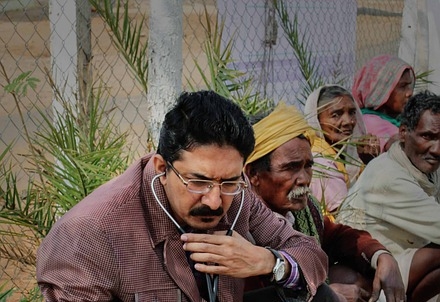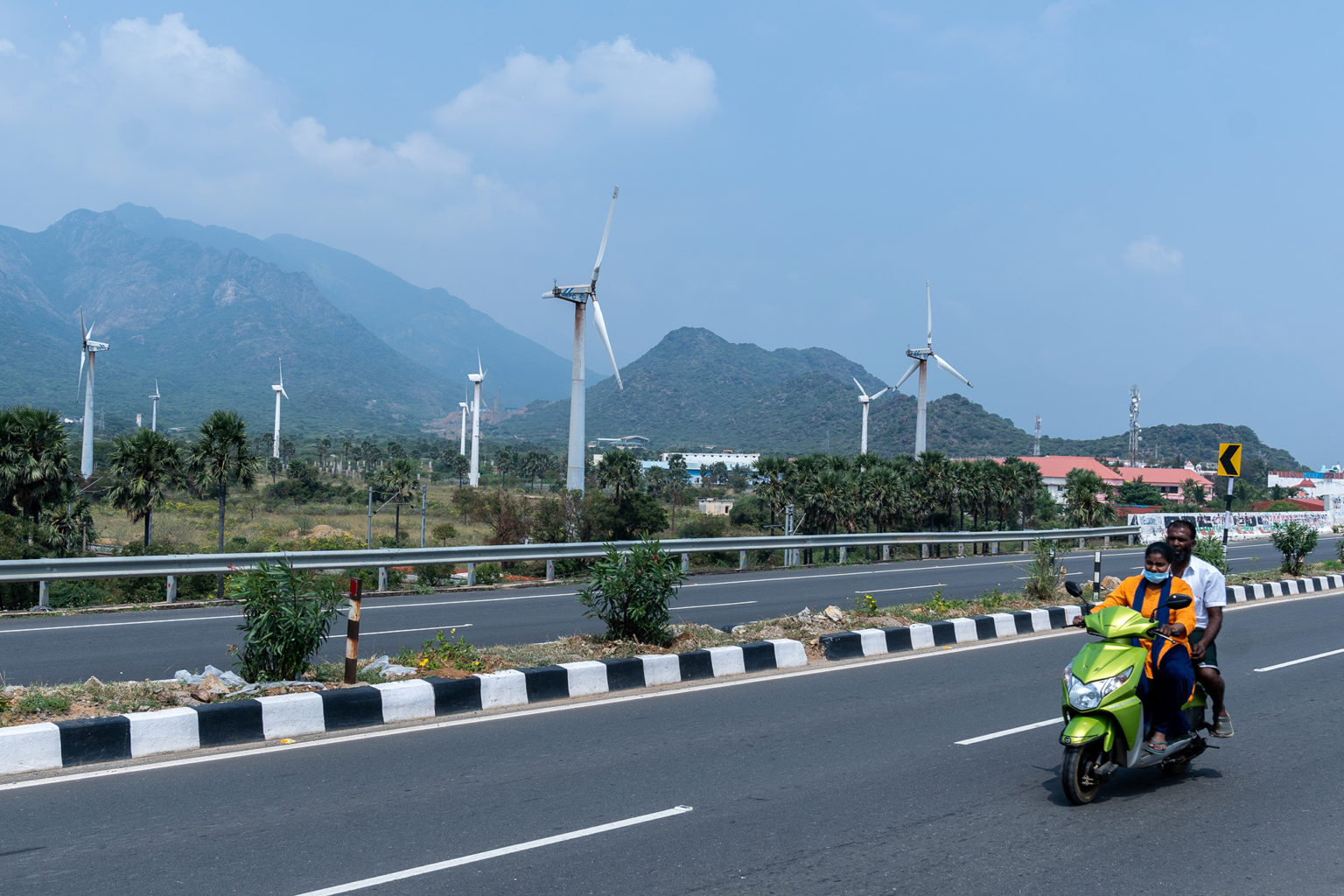The Draft National Water Framework Bill which was put out for public comments on 26th May, according to the Ministry of Water Resources (MoWR), provides “an overarching national legal framework based on the principles for protection, conservation, regulation and management of water as a vital and stressed natural resource, under which legislation and executive action on water at all levels of governance can take place.”
The rationale for such a bill, articulated by the Statement of Objects and Reasons of the bill itself, is indisputable. The bill says, “Under the Indian Constitution water is primarily a state subject, but it is an increasingly important national concern…” and then presents a number of reasons why this is so.
These reasons include the severe crisis that water resources are facing all over the country, the number of inter-state water disputes, the long term environmental and ecological implications of water use for human needs, and equity implications of water use.
It adds that “If a national law is considered necessary on subjects such as the environment, forests… a national law on water is even more necessary. Water is as basic as (if not more basic than) those subjects.”
Giving further justification, the bill says that “It is clear that the above considerations cast several responsibilities on the Central Government….All the aspects enumerated earlier cannot be brought within the ambit of the existing Central laws... Several States are enacting laws on water and related issues… Some divergences of policy and law may be inevitable and acceptable, but they have to be within reasonable limits set by a broad national consensus on certain basics… A national statement of the general legal position and principles that should govern such cases seems desirable.”
The proposed Framework Law attempts to put forward precisely such a set of overarching principles and priorities that will govern all water legislation and regulation in the country, including enactments by the states.
Welcome initiative, important provisions in draft
This is indeed a welcome initiative, for all the reasons that the draft bill itself articulates. The draft bill is a very well drafted document that has emphasised several important aspects, many of which have been missing in the entire gamut of water resources management regulation in the country. This emphasis of critical aspects is the core of the Framework Law, and will be its unique value addition to the regime of water resources management in the country.
The bill is divided into several chapters. Apart from the preliminary chapter of introduction and definitions, there are chapters which separately deal with the Right to Water for Life, certain Basic Principles, Integrated River Basin Management, Planning for Water Security and several others.
Together, these chapters present the framework within which all laws and regulations and practises of water use, conservation and management should take place. They include critical aspects fundamental to sound water management, many of which have been missing in the Indian legal and policy regime so far.
Critical aspects fundamental to sound water management
Some of these important principles that the draft bill presents are given below.
The bill recognises and articulates that water is an integral part of the ecosystem, sustaining it and being sustained by it. It emphasises that water is essential to sustain life in all its forms. Moreover, it reminds that water is the common heritage of the people of India, and highlights that in its natural state, water is not amenable to ownership, and that the government holds it in trust for the people.
Importantly, the bill introduces an explicit right to water for life. While there is general consensus that the Indian legal regime includes the right to water under the Fundamental Right to Life (Article 21 of the Constitution), this is not an explicit right but one that derives from judicial interpretation of the Article 21. So the provision in the bill to make this an explicit right would be a very progressive step.
Equally important, the bill proposes legal backing to a certain set of priorities of use of water. These are water use - for water for life, food security, sustenance agriculture, sustainable livelihoods, and ecosystem needs, priorities which the National Water Policy 2012 too has articulated but which are as of now without legal force. The absence of legal mandate to enforce these priorities has led to their blatant violation. It is fairly common to see all over the country water being diverted for industrial or commercial needs or the needs of big and powerful farmers even as basic needs remain unfulfilled.
The bill also recommends preparation of Water Security Plans, and gives what these plans should contain. Such plans would prove critical in not only tackling water crises when they emerge, but also in their prevention.
Thus, there are many important and progressive provisions in the draft bill.
Need to strengthen provisions for protection of ecological integrity
One important shortcoming in the bill is that the provisions for protection of water ecosystems are not strong enough. To be fair, there is quite unambiguous articulation for the requirement by Governments to protect the ecological integrity of water systems. There are also important clauses that requires minimum interference in existing natural river flows (Cl. 6(3)) and maintenance of environmental flows (Cl. 6(6)).
However, these provisions may not provide the necessary protection to water ecosystems particularly because they are not juxtaposed with the sections on water use, and do not accord overriding protection to ecological integrity or environmental flows.
For example, one of the clauses in the draft bill states that “The first priority and charge on water shall be meeting the right to water for life, followed by allocation for achieving food security, supporting sustenance agriculture, sustainable livelihoods and ecosystem needs.” However, another clause states that “Water in its primary aspect as a sustainer of human life, shall take precedence over other uses of water, such as agricultural, industrial, commercial, and other uses.” While this is important, it can imply that the other four priority uses – food security, sustenance agriculture, sustainable livelihoods and ecosystem needs – may not get sufficient protection. There are other such examples. These need to be corrected so that there is strong provision of protecting all these basic priorities, including ecosystems.
Legal and practical challenges
In spite of the importance of the objectives of the bill, there are important legal and practical challenges before such a legislation can become a reality. Water is a state subject, so the centre has limited leeway in enacting legislation related to water.
The bill itself recognises this and suggests some ways out, including Article 249 and 252 of the Constitution. The former allows the Parliament to make laws on subjects in the state list provided “the Council of States has declared by resolution supported by not less than two thirds of the members present and voting that it is necessary or expedient in the national interest…” The latter enables the centre to pass such laws if the legislatures of two or more states so resolve. However, both these methods have their limitations. The mention in the bill in this context of Article 250 (powers of the centre when Emergency has been proclaimed) could have been avoided. Thus, there are legal issues in Parliament bringing in such legislation.
More important is the challenge of aligning programs, plans and projects being taken up in the water sector with the principles articulated in the proposed bill. Already, several of these principles are articulated in the National Water Policy 2012, yet are being grossly violated.
Programs like the massive Inter Linking of Rivers project is a prime example where many of the key principles articulated by the bill stand violated. There are chances that governments will endorse the bill but continue to violate it on ground. Of course, once it is a law, such violations will be amenable to be questioned in a court of law. Yet, the larger challenge of internalisation and broad acceptance of the key principles of the draft bill remains.

Both, the legal and the practical challenges can only be addressed by building consensus amongst the states, the official and non-official agencies, and ultimately, the common citizens on the bill. Such a process – though it may take time, will yield long lasting benefits.
A Step Forward
In a sense, the draft bill itself represents an important step forward in the process of creating this consensus. The bill takes forward the articulation of the National Water Policy 2012, and also builds and develops further on the drafts of a similar law proposed by the earlier government at the centre.
It is hoped that this bill signals the beginning of a serious movement towards principles, priorities and practices of use, management and conservation of water that will meet people’s basic needs and be just, equitable, and sustainable.























